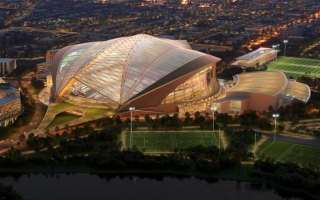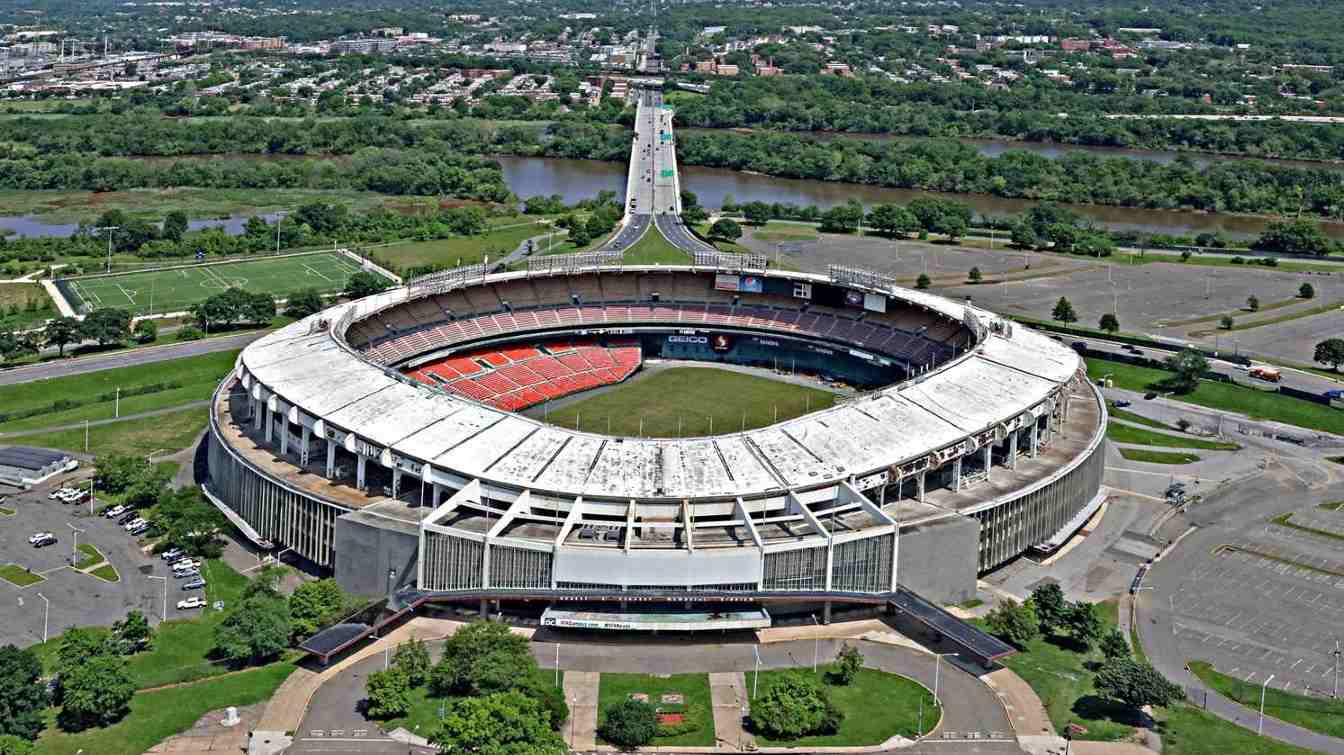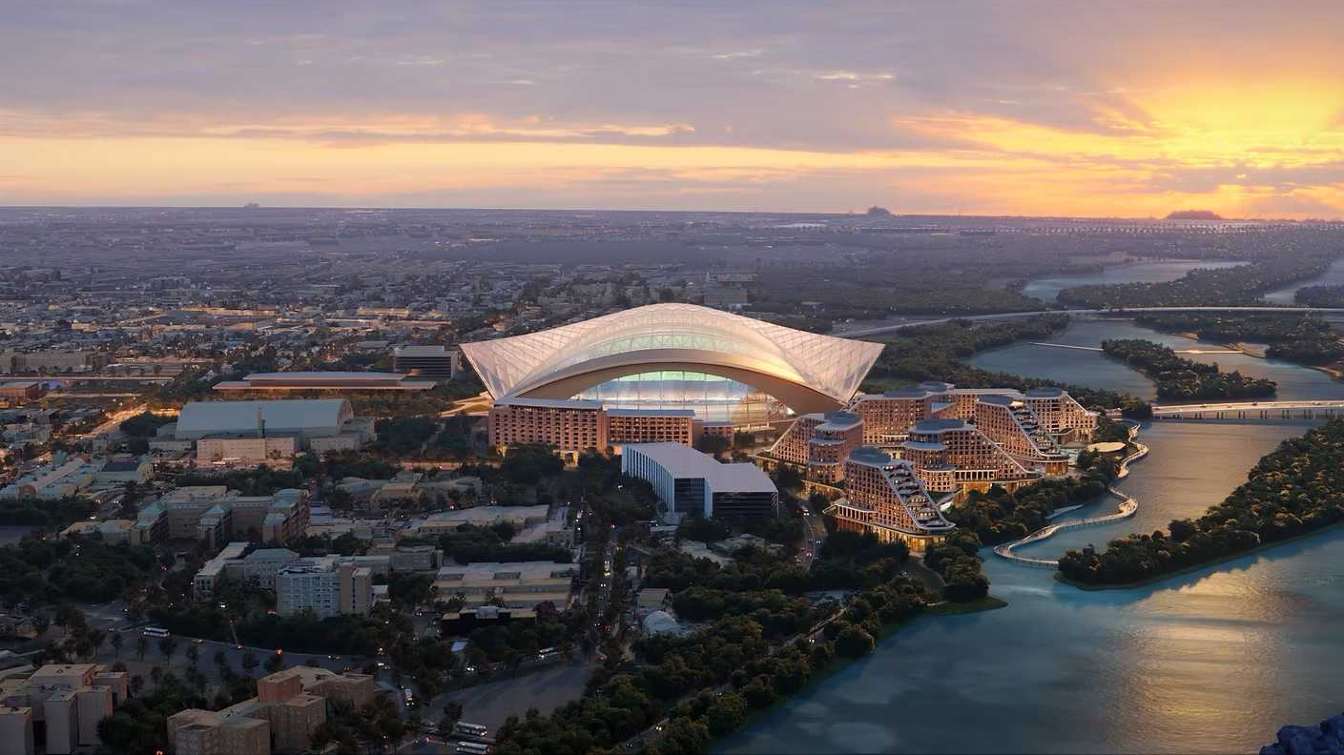USA: Work on long-awaited Washington stadium project in full swing
source: StadiumDB.com; author: Paulina Skóra
 The Washington D.C. City Council voted 11-2 in favor of building a new stadium complex on the site of the old RFK Stadium, clearing the way for the Washington Commanders to return from their current Landover facility.
The Washington D.C. City Council voted 11-2 in favor of building a new stadium complex on the site of the old RFK Stadium, clearing the way for the Washington Commanders to return from their current Landover facility.
Advertisement
Green light for the Commanders’ return
The Robert F. Kennedy Campus Redevelopment Act of 2025 authorizes the redevelopment and management of the waterfront site along the Anacostia River, including the construction of a new stadium. The stadium portion of the project is expected to be completed by December 2030, allowing the team to leave Northwest Stadium, where they have played since 1997 following their move from RFK Stadium to the suburbs.
City Council also outlined a broader vision for the site, including restaurants, retail spaces, and roughly 5,000 homes. The full redevelopment is expected to wrap up by 2040. Councilmember Charles Allen of Ward 6 highlighted that fans can proudly celebrate the Commanders’ return to the District, marking a significant moment in the city’s history. The approved legislation provides D.C. with a rare opportunity to revitalize the Anacostia waterfront and create a multifunctional area combining professional and amateur sports, recreation, green spaces, and cultural venues.
According to WTOP sources, team and city officials are in talks with firms HKS and HNTB to sign contracts for the project. Both companies have extensive experience building modern stadiums in the U.S.
 © Duane Lempke
© Duane Lempke
Commanders make big commitments
Team owner Josh Harris signed a memorandum in December with Washington Governor Wes Moore and interim Prince George’s County administrator Tara H. Jackson. Under the agreement, the team will begin dismantling the Landover stadium within 90 days of playing the first game at the new venue. After demolition, the club will collaborate with state and local authorities to transform the 200-acre site into a vibrant mixed-use complex, including residential, commercial, and other permitted uses.
The Commanders have also pledged at least $2.7 billion toward the RFK project and will cover the full stadium construction costs, currently estimated at under $500 million. The new stadium will feature a transparent roof and a capacity of up to 65,000 spectators, slightly less than Northwest Stadium’s 67,617 seats.
RFK stadium demolition underway
The historic RFK Stadium is quickly disappearing from the city skyline. The construction crew has already removed the roof and upper steel beams and is now working systematically from east to west. More than 2,465 tons of steel and 16 tons of plastic have been removed so far, and project officials expressed satisfaction with the progress.
The project is not just about demolition—it also aims to preserve the stadium’s legacy. A local artist, previously collaborating with the Commanders, is working with Events D.C. to transform salvaged materials into artworks and keepsakes. Steel beams and concrete will be repurposed so residents can take home a piece of RFK. A farewell event is also planned, giving the community a final chance to connect with the stadium’s history.
To ensure transparency, the city streams the demolition live and has installed informational boards on-site. Regular meetings with city agencies and neighborhood groups help guide the process. Environmental measures are in place to prevent debris from entering the Anacostia River and protect nearby metro lines and roads. Full demolition is expected by fall 2026.
Washington braces for a transport challenge
Although the Commanders won’t return until 2030, questions remain about how D.C. will fund and expand the Metro system to handle matchday crowds. The project aims to create the most transit-accessible NFL stadium in the country. Councilmember Charles Allen, head of the Transportation Committee, wants Metro to be central to the game-day experience, transporting over 30,000 fans—up from the current 4–5,000 using the Metro in Landover. By comparison, Seattle, considered one of the most transit-friendly NFL cities, handles around 9,000 people via rail.
Fans will take the Metro and walk through a plaza leading directly to the stadium. This requires major upgrades to the Stadium-Armory station on the Blue Line and potentially a second station on the opposite side of the campus. Allen cites precedent from the Washington Nationals’ early years at RFK, when tens of thousands used Metro to reach games.
The rail expansion isn’t just for a few football days a year. The RFK redevelopment plans 6,000–8,000 new homes, potentially adding 12,000 residents. This phase is expected to finish by 2040. D.C. authorities, alongside the Washington Metropolitan Area Transit Authority, are preparing a $2 million study to determine necessary infrastructure upgrades and costs. The train station alone could cost hundreds of millions, though the exact figure is not yet known.
The D.C. Council has already allocated $20 million annually for 30 years from stadium revenue to transport, which could secure bonds to start construction immediately. Allen plans to complete the study in six months so work can begin on schedule for the 2030 stadium opening. He emphasizes that the investment is essential; relying solely on parking and cars would create unbearable congestion for game days and future residents alike.
Advertisement
 StadiumDB
StadiumDB